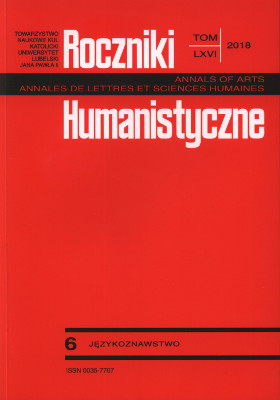Uwagi o kondycji dwudziestopierwszowiecznej polszczyzny z perspektywy procesów globalizacyjnych
Some thoughts on the condition of Polish language in the 21st century from the perspective of globalisation
Author(s): Anetta Bogusława StrawińskaSubject(s): Social Sciences, Language and Literature Studies, Applied Linguistics, Communication studies, Sociology, Sociolinguistics, Theory of Communication, Globalization
Published by: Towarzystwo Naukowe KUL & Katolicki Uniwersytet Lubelski Jana Pawła II
Keywords: globalisation; carnivalisation of culture; consumerism; linguistic fashion; Americanisation of Polish; Anglicism; modern Polish
Summary/Abstract: My goal in writing this article is not so much to provide a synthetic description of the basic directions of transformation of modern Polish brought on by globalisation, but to indicate the most important effects of the Americanisation of Polish in the 21st century. In general, one tangible effect of globalisation on the Polish language is on one hand to the borrowing of Anglo-American lexemes, phrases, or word order (e.g. sport telegram, play lista, radio reklama). On the other hand there is the adaptation of internationally used Anglo-American terms (e.g. roaming – pol. roamingowy, SMS – pol. esemesik, esemesek, esemeśnik, esemesiara), as well as increasing the range and number of composite words by creating new structures based on borrowed words (e.g. derivatives with the prefix cyber-, e-, euro-, sex-, narco-). The authors of the canon linguistic works see the most important causes of borrowing from American English into Polish in: comfort, frequency of occurrence and use of Anglo-American vocabulary, the need to name new designates and terms, the dominance of English in business and its prestige. The predicted effects of the Americanisation of Polish include: a fashion for such borrowings, adaptation of an American point of view and cultural signifiers, carnivalisation of culture and “Ponglish” (P. Korcz, M. Matulewski, “Wpływ globalizacji na powstanie polsko-angielskiego pidżynu zawodowego,” Język. Komunikacja. Informacja 2006, no. 1, pp. 83-84).
Journal: Roczniki Humanistyczne
- Issue Year: 66/2018
- Issue No: 6
- Page Range: 197-215
- Page Count: 19
- Language: Polish

